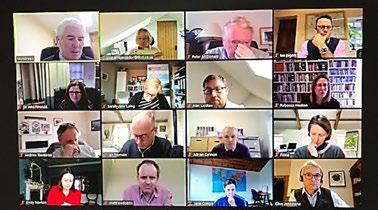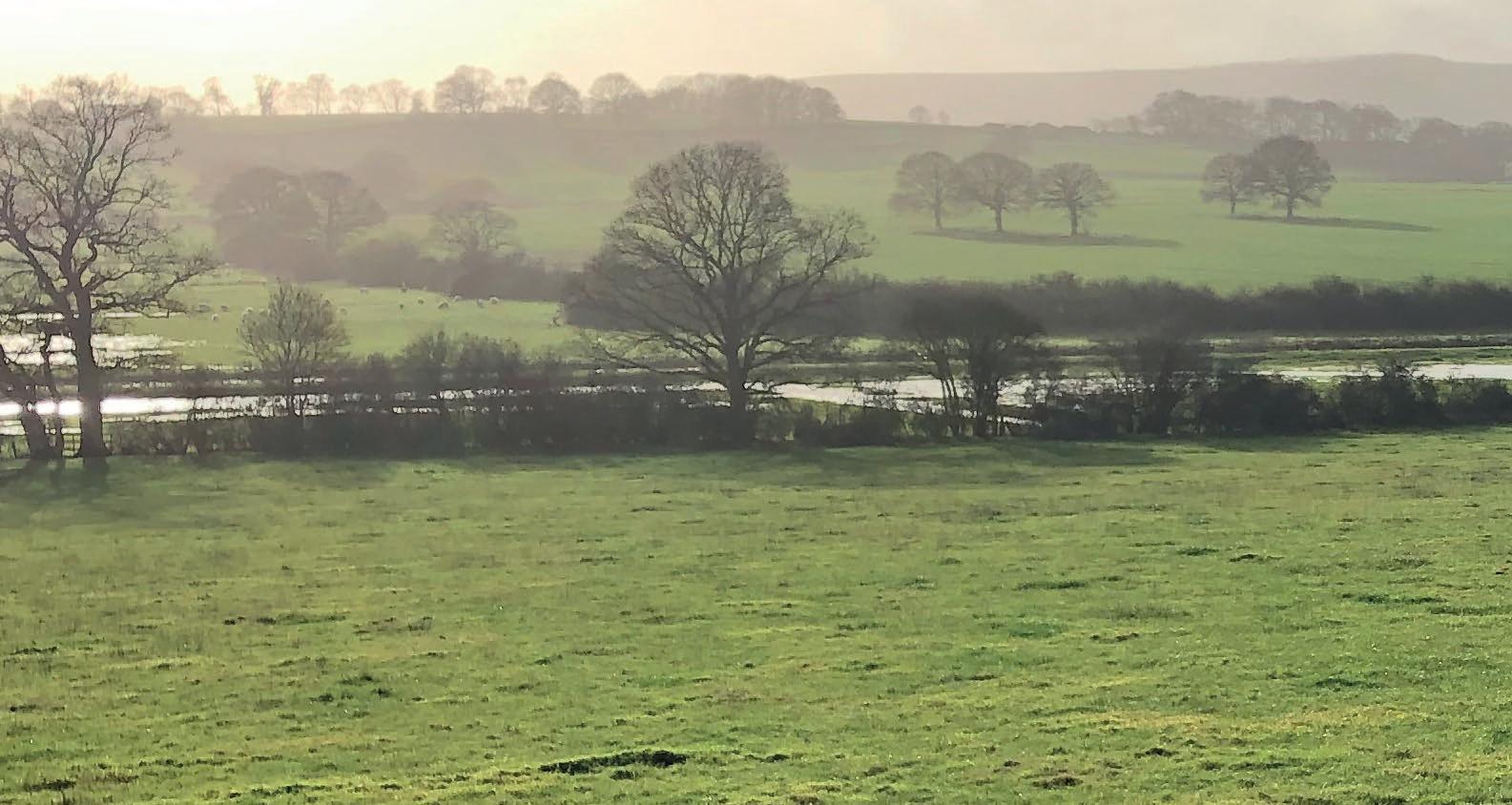
5 minute read
Charitable Trust
FCCT Educator Awards
CARLA COGHLAN
SRUC, Craibstone Estate, Aberdeen – looking at how agri-tourism is creating additional income streams and spreading risk on New Zealand farms, whilst helping to bridge the education gap between consumers and producers. Visiting farming organisations and farms in NZ, including sheep, fruit, deer and lavender producers, will reveal useful principles around identifying target audiences, marketing and potential constraints on agri-tourism, with a strong focus on meaningful experiences giving the public experiential “living their life” agri-tourism.
CLAIRE TOOGOOD
Harper Adams University, Shropshire – investigating the role of HR principles in attracting and motivating workers from non-agricultural backgrounds, especially after last year’s Pick for Britain initiative foundered. Agriculture requires the right people, including from diverse backgrounds, but needs to do more to facilitate their involvement. Research undertaken at a range of UK education and apprenticeship providers will develop case studies and identify principles to support the teaching and development of effective people management and leadership skills.
DR KATE JOHNSON
University Centre Sparsholt, Hampshire – looking at marine herbivorous fish and how their nutrition can be optimised while ecosystem impacts are minimised. Malaysia has invested substantially in novel high quality species and their farming over recent years. Visits would investigate high value species more aligned to UK consumer tastes, such as grouper, sea bass, snapper and giant trevally, plus shrimp farming on a very large scale. The success of sustainability approaches will be considered.
SARAH WHALEY
Duchy College, Cornwall – comparing the deployment of agro-ecology principles in the UK with the adoption of more radical syntropic agriculture on a 410ha farm in Bahia state, Brazil, developed by Swiss farmer and researcher Ernst Götsch, and Sitio Semente farm near Brasilia. Syntropic agriculture aims to mimic nature, particularly through bio-dynamic approaches to multi-cropping and targeted crop management during the season. Promoting such ideas would stimulate ‘outside-the-box’ thinking and the merits of collaborative efforts.
TOM FURNESS
University Centre Reaseheath, Cheshire – looking to visit centres of expertise to investigate the wide range of low input systems and better understand how simple underlying principles can be adopted in conventional livestock operations to improve sustainability. By visiting a range of farms, estates and research institutes within the UK, and attending formal training and virtual and face-toface conferences, with emphasis on grassland management, the findings would help improve the environmental impact of livestock agriculture.
Five inspiring individuals will benefit from the Farmers Club Charitable Trust’s 2021 Agricultural Educator Awards. Charles Abel reports
FIVE enthusiastic farming educators have been selected to receive special support from the Farmers Club Charitable Trust, undertaking innovative studies in Malaysia, New Zealand, Brazil and the UK.
Over the past four decades the Trust has provided over £700,000 of funding to help agricultural educators develop their knowledge and expertise, to support a broad range of UK farming activities.
The selection panel, chaired by Quintin McKellar CBE, Vice-Chancellor of the University of Hertfordshire, with Farmers Club Chairman Keith Redpath and FCCT Trustees Meryl Ward and Des Lambert OBE, agreed total funding of £18,000.
Full reports of all FCCT projects are available on-line: www.tfcct.co.uk More info from FCCT Ambassador Lisa Turner (ambassador@tfcct.co.uk).
Windsor Leadership Trust Alumni Forum
PROMINENT agricultural leaders were able to meet online in what was the first of a new forum for the FCCT Windsor Leadership Trust alumni. The virtual forum was an outstanding success with the programme focussing on ‘what covid-19 has taught me’ and ‘managing change in my organisation’. This was led by guest speaker Sir Clive Johnstone KBE CB a retired Royal Navy officer who had a naval career spanning nearly 34 years ending as a Vice Admiral, Royal Navy and in command of NATO’s Maritime Forces.
The impact of Covid-19 on leaders who were taking part has been significant. According to one participant it has ‘been a massive wake-up call on how fragile life is and how fragile business is’. Leaders say they are dealing with whole team impact, rather than one or two individuals. The emotional and psychological impact on those leading organisations came through as a particular challenge.
The benefits seen by the group moving forward are the ability to share the worry, seek support from each other and utilise the ‘collective leadership wisdom amongst the group’.
“The ability to understand the unique issues and challenges facing us, our role in making good decisions at difficult times, and our capacity to demonstrate strong leadership has never been more important,” reflected Nick Green one of the Farmers Club Charitable Trust’s trustees and WLT alumnus himself.
“The group’s depth of wisdom, insight and experience, allied to Sir Clive’s address gave us the opportunity to step back, consider our situation and decide what we need to do amongst a group of like-minded and trusted people,” he added.
Trust Ambassador Lisa Turner was delighted to have organised the event and is looking forward to supporting the group with further sessions.

Farming brief
A YouGov survey of over 22,000-plus in 16 countries shows Britons hold farmers in higher regard than any other country, 47% saying they would be happy if their child became a farmer, compared to a global average of 23%. Covid-19 and Brexit challenges to food supply chains have made people more aware of the UK’s leadership in producing first-class food, with some of the highest environmental and animal welfare standards, the CLA suggests.
How a US trade deal could impact UK food and farming is explored in a new AHDB report. It considers methods of production, comparative costs, agricultural policy and insights from businesses already exporting to the US. Standards are unlikely to be an issue, with specific US supply chains already meeting other market needs. Last September saw the first shipments of British beef for 24 years, worth £66m over five years.
Rabobank analysts have taken a fascinating look at the potential for an
agri commodity ‘super-
cycle’. With key feed and food prices pulled to 9-month and 7-year highs it ‘dreams’ of surging bull markets. Through clever comparisons with the origins, impacts and management of Biblical scarcity the authors explore key drivers, giving plenty of food for thought. https://










